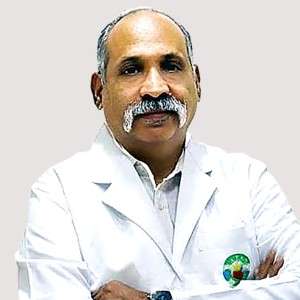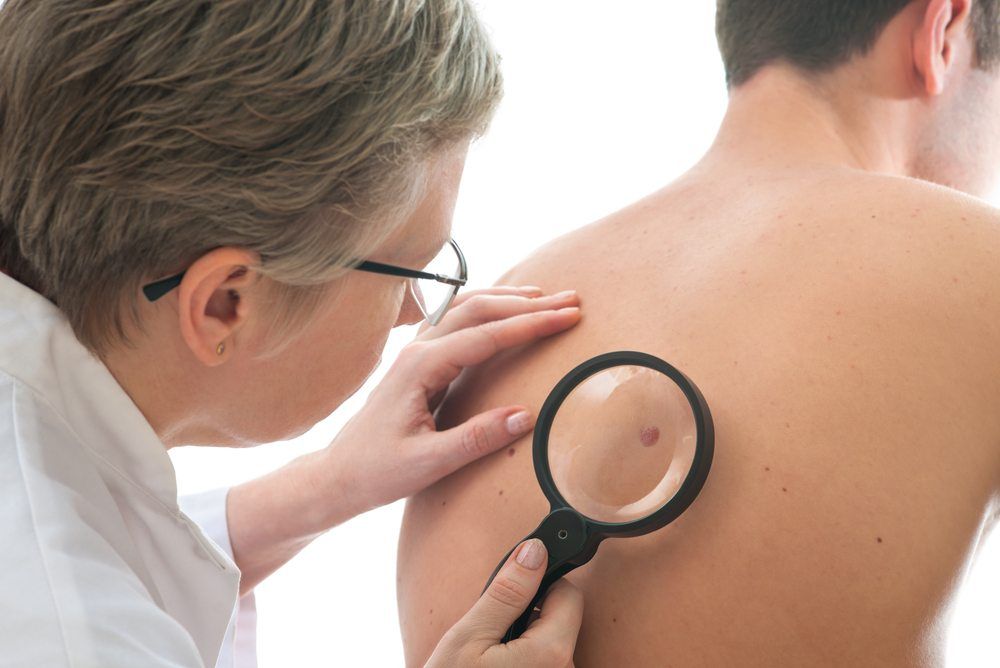Understanding Skin Cancer
Skin cancer is one of the most common forms of cancer globally, but it is also among the most treatable when detected early. It occurs when abnormal skin cells begin to grow uncontrollably due to DNA damage caused by genetic mutations, prolonged UV exposure, or other environmental factors. While skin cancer can occur anywhere on the body, areas frequently exposed to the sun, such as the face, neck, arms, and legs, are at the highest risk.
There are three main types of skin cancer:
- Melanoma: This is the most dangerous type of skin cancer and develops in melanocytes, the pigment-producing cells of the skin. Melanoma can spread quickly to other parts of the body, making early detection critical for successful treatment.
- Basal Cell Carcinoma (BCC): The most common type of skin cancer, BCC develops in the basal cells of the epidermis. It grows slowly and rarely spreads to other parts of the body but can cause significant damage to surrounding tissues if untreated.
- Squamous Cell Carcinoma (SCC): Though not covered here, SCC is another common type, often appearing on areas exposed to the sun for long periods.
Signs and Symptoms of Skin Cancer
Identifying skin cancer early is vital for a better prognosis. The following signs and symptoms can indicate skin cancer and should not be ignored:
- The appearance of new moles or growths on the skin.
- Changes in the shape, size, or color of existing moles.
- Lesions with irregular borders or uneven coloration.
- Non-healing sores or ulcers that bleed or crust over repeatedly.
- Raised or shiny lumps on the skin, often with visible blood vessels.
- Rough, scaly, or reddish patches on the skin that persist.
- Dark pigmentation spreading from a mole into surrounding areas.
The ABCDE Rule is a simple way to remember the warning signs of melanoma:
- A: Asymmetry – one half of the mole does not match the other.
- B: Border – the edges are irregular, ragged, or blurred.
- C: Color – the mole has uneven or multiple colors.
- D: Diameter – the mole is larger than 6mm (the size of a pencil eraser).
- E: Evolving – the mole changes in size, shape, or color over time.
Diagnostic Process for Skin Cancer
Accurate diagnosis is the foundation for effective treatment. Skin cancer diagnosis typically involves a step-by-step process:
- Physical Examination: A dermatologist examines the skin for suspicious lesions, moles, or growths, looking for irregularities that may indicate cancer.
- Biopsy: If cancer is suspected, a small tissue sample is collected for microscopic examination to confirm the diagnosis. Different types of biopsies, such as punch biopsy or excisional biopsy, may be performed based on the size and location of the lesion.
- Dermatoscopy: A specialized handheld device is used to closely examine the structure of skin lesions, providing additional details for diagnosis.
- Imaging Tests (if needed): Advanced imaging such as CT, MRI, or PET scans may be required in cases where cancer has potentially spread to other parts of the body.
Treatment Options for Skin Cancer
India is a global leader in offering advanced and affordable skin cancer treatments, ranging from surgical interventions to non-invasive therapies. Treatment plans are customized based on the type, stage, and severity of the cancer.
1. Surgical Treatments
- Excisional Surgery: The cancerous lesion, along with a margin of healthy skin, is surgically removed to ensure complete elimination.
- Mohs Micrographic Surgery: A precise surgical procedure where thin layers of cancerous tissue are removed and examined under a microscope. This technique minimizes damage to surrounding healthy skin and is especially effective for delicate areas like the face.
2. Radiation Therapy
High-energy X-rays or proton beams are used to destroy cancer cells. Radiation therapy is often recommended for patients who are not suitable for surgery or when cancer is located in a challenging area.
3. Chemotherapy
This treatment involves the use of drugs to kill cancer cells. Chemotherapy can be applied topically for superficial cancers or administered intravenously for advanced cases.
4. Immunotherapy
Immunotherapy stimulates the body’s immune system to target and destroy melanoma cells. It is particularly effective for advanced stages of melanoma that have spread to other organs.
5. Targeted Therapy
Targeted drugs focus on specific genetic mutations in cancer cells to inhibit their growth and spread. These therapies are highly effective for patients with advanced melanoma.
6. Cryotherapy
A non-invasive method where cancerous cells are frozen using liquid nitrogen. This is typically used for early-stage skin cancers or pre-cancerous growths.
7. Photodynamic Therapy (PDT):
PDT involves applying a light-sensitive drug to the skin and activating it with a specific wavelength of light. This destroys cancer cells without harming healthy tissue, making it an excellent option for non-melanoma skin cancers.
Benefits of Skin Cancer Treatment in India
India has become a preferred destination for medical tourism, particularly for cancer treatments. Here are some of the key benefits:
- Experienced Specialists: India has some of the world’s best dermatologists and oncologists, with vast experience in treating skin cancers.
- Advanced Technology: Hospitals are equipped with cutting-edge facilities, including robotic surgery, precision radiation therapy, and genetic testing.
- Affordable Treatment: Skin cancer treatments in India are highly cost-effective compared to Western countries, with no compromise on quality.
- Holistic Care: Comprehensive support is provided for physical, emotional, and psychological well-being during and after treatment.
Recovery and Post-Treatment Care
Recovery depends on the type and extent of treatment received. Most patients undergoing non-invasive procedures or early-stage surgeries recover quickly with minimal discomfort.
- Sun Protection: Avoid direct sunlight and use a high-SPF sunscreen regularly. Protective clothing and hats are also recommended.
- Regular Check-Ups: Follow-up appointments with your oncologist are essential to monitor recovery and check for any recurrence.
- Healthy Lifestyle: Maintain a balanced diet and engage in moderate physical activity to support immune health.
- Emotional Well-Being: Skin cancer treatments can be emotionally challenging. Counseling or support groups can help patients cope better.
Why Choose Healtour Solutions for Skin Cancer Treatment?
At Healtour Solutions, we understand the complexities of navigating cancer treatment. Our dedicated team ensures that you receive expert care in India’s best hospitals, along with a seamless medical travel experience.
Our Key Services:
- Comprehensive Assistance: From diagnosis to post-treatment follow-up, we provide end-to-end support.
- Personalized Care: Every patient’s needs are unique, and we tailor our services accordingly.
- Partner Hospitals: We collaborate with JCI and NABH-accredited hospitals offering world-class cancer care.
- Transparent Pricing: We provide clear and affordable cost estimates with no hidden charges.
- 24/7 Support: Our team is available round-the-clock to assist you.
Book Your Consultation Today!
If you or your loved one is facing skin cancer, timely treatment can make all the difference. Contact Healtour Solutions today to explore the best skin cancer treatment options in India and regain your health.
FAQs About Skin Cancer Treatment
- What is skin cancer?
Skin cancer is an abnormal growth of skin cells caused by genetic mutations, excessive UV exposure, or other factors.
- What are the types of skin cancer?
The most common types are melanoma, basal cell carcinoma (BCC), and squamous cell carcinoma (SCC).
- How is skin cancer diagnosed?
Diagnosis involves a skin examination, biopsy, and imaging tests if necessary.
- What are the treatment options for skin cancer?
Treatments include surgery, radiation therapy, chemotherapy, immunotherapy, and targeted therapy.
- Is skin cancer curable?
Yes, skin cancer is highly treatable, especially if detected early.
- What is Mohs surgery?
Mohs surgery is a precise surgical technique that removes cancerous tissue layer by layer while sparing healthy tissue.
- What is the cost of skin cancer treatment in India?
The cost ranges from $2,500 to $8,000 USD, depending on the treatment type and hospital.
- Are the treatments painful?
Most treatments are minimally invasive and cause little to no discomfort. Post-treatment pain is managed effectively.
- How can I prevent skin cancer?
Avoid excessive sun exposure, use sunscreen, and conduct regular self-examinations for unusual skin changes.
10. Why choose India for skin cancer treatment?
India offers expert care, advanced technology, and cost-effective treatment options, making it a preferred destination for medical tourism.




